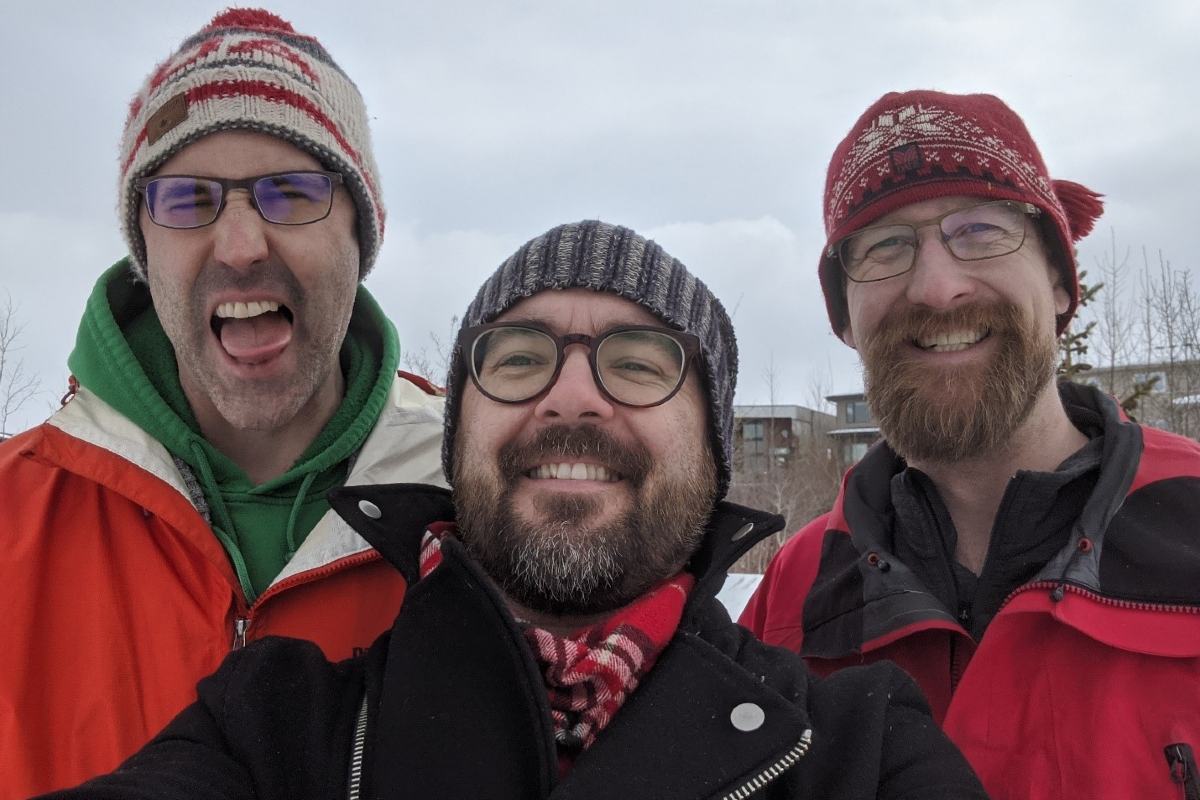
Pictured are three Biological Sciences graduate student alumni visiting Michael’s restoration project in Larch Park. From left to right are Michael Clark, Gordon McNickle, and Phil DeWitt. This picture was taken in March 2020, soon before Michael's passing in April.
Dear colleagues,
It is with great sadness that I report the passing of Michael R. Clark, a proud alumnus of our department (BSc 2007, MSc 2010). Michael leaves behind his wife, Dawn MacRitchie (also formerly of the Department of Biological Sciences), and their young son, Lauchlin. Michael was a remarkable fellow, and I wish to let you know a little about him.
I first met Michael in my Plant Ecology course in 2004. Always in the front row, Michael was engaged, robust during a debate, and he had an unusual ability to (positively) draw peoples’ focus. I felt then, as I do now, that Michael represented the best of what I enjoy about working with students – a thirst for knowledge, a desire to participate, and a willingness to work hard to make his communities stronger. For example, during Michael’s final year as an undergraduate, he converted his passion for environmental issues into action by spearheading the effort to establish the University’s first Office of Sustainability.
Michael began his MSc in my lab in September 2007, and soon after that, he learned he had a brain tumour. Michael persisted with his studies; incredibly, he never took formal medical leave, and he even was able to see his work through to publication. Michael’s perseverance was inspiring then and remains so now. Fortunately, he was not alone in his battle. By his side were both his loving family, and a deep relationship with his then soon to be spouse.
Following his degree, Michael built a company (Clark Ecoscience & Sustainability) that used a science-based approach to building and protecting native plant communities. He worked tirelessly with developers, leading many to see the value of utilizing native vegetation in landscape designs. Unfortunately, even with surgeries and treatments, Michael’s cancer did not stay dormant.
Michael has impacted many of us on campus, some directly and some through the legacy of his actions. Even in this challenging time of COVID, I see optimism and hope when I think of Michael. He valued the opportunity to learn and push himself, and he was not beaten by adversity. I am grateful to have had the chance to work with Michael, and my deepest sympathies go out to Dawn, Lauchlin, and Michael’s extensive network of friends and family.
Sincerely,
Professor, Department of Biological Sciences